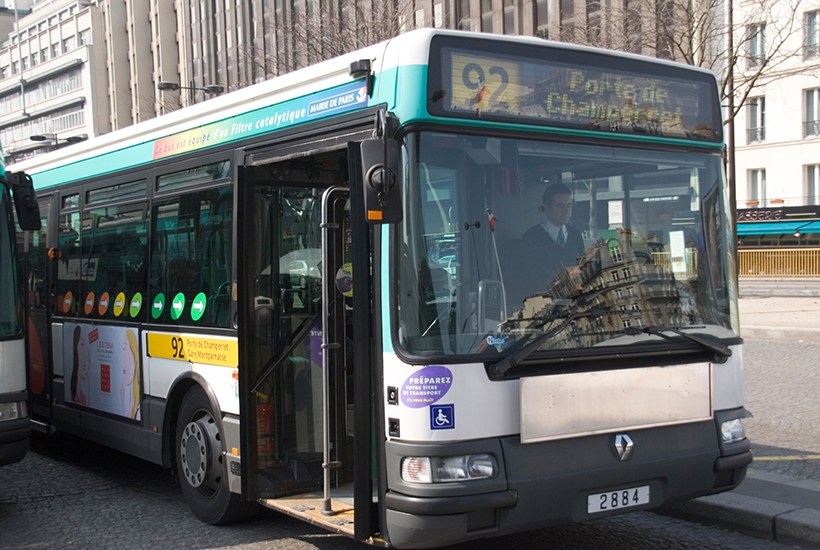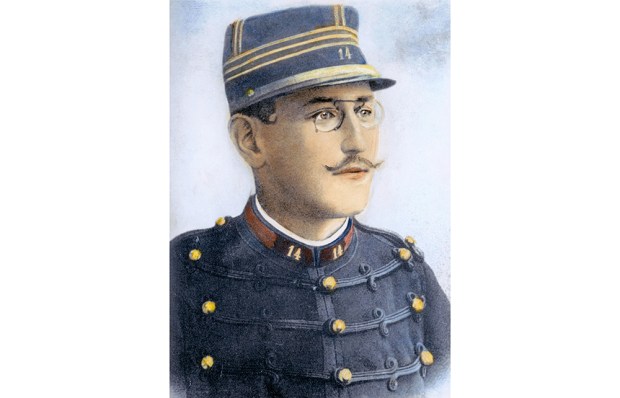Many would say the commute was one thing they didn’t miss in lockdown. But when Lauren Elkin was ‘yanked out of the public sphere and resituated, inescapably, in the private’, she felt nostalgic for the bus’s incidental intimacy. The Franco-American writer and translator revisited notes made on her iPhone between September 2014 and November 2015, after she pledged to ‘observe the world through the screen of my phone, rather than to use my phone to distract myself from the world’.
The diary entries record biweekly journeys between her home in Paris’s fifth arrondissement and the university where she taught in the seventh. These private jottings take shape as No. 91/92: Notes on a Parisian Commute, a celebration of the commonplace observations and interactions that comprise urban living, and a vivid montage of what it meant to be a Parisian in a time of siege.
Blending memoir, history and criticism, Elkin’s work engages with the literature of both her native and her adopted tongues. Her bestselling book Flâneuse reconsidered the role of the female wanderer in urban environments, mapping a feminist psychogeography. Its slender successor — handily sized for your commute — continues her investigation into how we negotiate public space and coexist in cities: a short film to follow the feature, if you will.
No. 91/92 is influenced by Georges Perec, the French literary innovator whose work honoured the ‘infra-ordinary’ over the ‘extra-ordinary’. In chronicling the approach to and aftermath of tragedy, Elkin captures, in real time, the moment at which the quotidian is invaded and becomes ‘the big event’.
It begins gently, with vignettes and seat etiquette. The bus forces us to acknowledge other people’s needs but some, insulated by screens and headphones, remain unaware. Elkin’s spontaneous narrative veers from empathetic to drolly exasperated as she studies her fellow travellers, juxtaposing the superficial (outfit critiques) with the significant (her battle for French citizenship). She enjoys the unique perspective on the city that the bus offers, and the fleeting alliances forged over a diversion. No wonder Perec and his fellow Oulipians, a group of experimental French-speaking writers, set so many stories on buses. Such offbeat tales ‘teach us how to live together’.
January brings a dramatic shift: the Charlie Hebdo and Hypercacher attacks. Blindsided Parisians take to the streets, adding their steps to the city’s long tradition of marching. Two months later Elkin discovers she’s pregnant. Senses heightened, suffused with anticipation, she imagines her future: ‘hard, but so nice.’ Weeks after that she learns that her pregnancy is ectopic and undergoes emergency surgery. As she convalesces, physical pain and grief commingle and days dissolve. Syntax breaks down, her sentences spilling urgently onto the page as she struggles to extract meaning from loss. But she must reassemble herself and re-board the bus.
The final entry is in November, three days after the Bataclan attack. Terrorism assaults the ‘right to an everyday’ and shatters the fragile trust system on which community is built. Elkin has swapped the bus for the Métro, ‘an exercise in closeness that feels unbearable right now’. Yet she has faith in the healing power of proximity, however uncomfortable.
No. 91/92 records the daily grind of living through trauma, be it losing a baby or mourning a city’s dead. ‘The hardest thing to make sense of,’ she reflects, ‘was how in an instant, the everyday can become an Event.’ Her brain baulks at the way the untoward is woven from the humdrum — the gunmen ‘bought those clothes they were wearing and paid with their bank cards’.
In his book An Attempt at Exhausting a Place in Paris, Perec tries to track everything he sees in the Place Saint-Sulpice. What matters, suggests Elkin, ‘is not the importance of what is observed, but its triviality’. The child of parents killed in the second world war, Perec was no stranger to ‘the eruption of evil into the everyday’. His exaltation of the mundane is a form of resistance: a choice to ignore potential threats and ‘focus instead on the fabric of peace’.
Elkin’s epilogue describes how the Charlie Hebdo trials of autumn 2020 sparked further violence, and in the wake of bitter culture wars, gilets jaunes protests and the pandemic, the harmony of the 2015 Charlie Hebdo march feels lamentably distant. Yet, ever philosophical, perhaps a touch sentimental, Elkin hopes ‘the moments of history which shatter our everyday are moments to redefine our togetherness’.
Informal, intense, inconsistent, No. 91/92 is emphatically a diary. If you object to occasional punctuation or one-line entries, move along, please. Yet where Flâneuse meandered across the globe, No. 91/92 shows us that a repeated route can be just as attention-worthy. This elegiac, redemptive meditation on collective and private grief reminds us to look up from our screens and notice the unremarkable threads that bind a community.
Got something to add? Join the discussion and comment below.
Get 10 issues for just $10
Subscribe to The Spectator Australia today for the next 10 magazine issues, plus full online access, for just $10.
You might disagree with half of it, but you’ll enjoy reading all of it. Try your first month for free, then just $2 a week for the remainder of your first year.














Comments
Don't miss out
Join the conversation with other Spectator Australia readers. Subscribe to leave a comment.
SUBSCRIBEAlready a subscriber? Log in